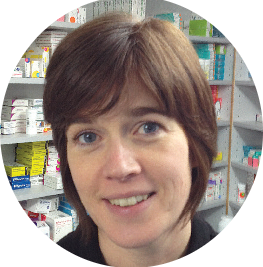OTC

How to build your child health category
In OTC
Bookmark
Record learning outcomes
Parents will welcome your professional advice on children’s health matters from minor ailments such as coughs and colds to lifestyle tips on healthy eating, exercise and mental health

Concerns about children’s health are one of the main reasons parents visit a pharmacy – they know they have easy access to professional advice. Whether it’s reassurance that they are treating a fever correctly, advice on vitamin supplements, the best way to treat head lice or concerns about sugar content in medicines, parents expect their local pharmacy to provide up-to-date, independent advice. But as well as giving practical advice on treating childhood ailments, pharmacy staff can play a wider role in providing parents with preventive advice on how to ensure children’s long-term health is protected through correct diet and exercise, while mental health is given a high priority, too.
Graham Jones, pharmacist and owner of Alphega Pharmacy’s Lambourn Pharmacy and Shrivenham Pharmacy, says: “I give a talk to local schools about diet and exercise and their effects on health. I believe it encourages children to think positively about these lifestyle habits and engages their interest. This is something other pharmacists could be doing, too. Invest in the community and you’ll get more back and they will value your services more.â€
What does well in pharmacy?
At Metro Health & Beauty, distributor of the Mustela brand, pharmacist Raj Sandhan, says sales of baby and childcare products are set to rise by 3 per cent by 2017 to £470 million. Within that category, he says suncare is doing especially well.
“Analgesics are the biggest area for us in children’s health and have been for years,†says Mr Jones. “Sales of cough and cold medicines have gone down steadily since the regulations changed, but in general our sales of children’s medicines are growing.â€
At Rowlands Pharmacy, clinical pharmacist Sarah Buchan says: “Child pain relief drives sales within this category. Big brands continue to perform well, but it’s worth noting the importance of our own brand. Once again, during 2015 own-label outperformed other leading brands within paediatric medicines in both GSL and P categories.†She says head lice products are selling well, although this relies on TV advertising campaigns. “So it’s good to keep up with what’s current and what’s on TV.â€
She has this advice to offer: “We have certainly seen a rise in pharmacist consultations over the past few years, so it’s important for the pharmacy setting to be approachable and have the right advice readily available. Our customers look to us as healthcare professionals and have confidence that we are able to make the correct product recommendations or referrals based on open and honest interactions. This can only help build this category and the loyalty of customers.â€
The most common areas for which parents seek advice include head lice, coughs and colds, rashes, allergies, tummy upsets and chicken pox, says Ms Buchan. “Informing parents about vaccination schedules and post-vaccination advice are an important part of our role, too,†she says. “Recently, there has been a change in the guidance regarding the MenB vaccination and use of paracetamol. It’s important that pharmacy teams are well equipped to provide safe and accurate advice to parents.â€
Diet and sugar issues
Obesity is one of the biggest problems facing children’s long-term health in the UK, and it’s an area where pharmacy could get more involved. The UK has the highest rate of obesity in Europe, with one in three children now overweight or obese. Obesity in under-11s is up by more than 40 per cent in the past 10 years and, if the trend continues, half of all children will be obese or overweight by 2020, according to Sustain. Long-term health implications include heart disease, diabetes, cancer and psychological problems.
The new Eatwell Guide, released in March, recommends we include more fruit, vegetables and starchy carbohydrates but fewer sugary foods and drinks in children’s diets. Sugary soft drinks have been removed from the guide and foods high in fat, salt and sugar moved to the periphery of the guide. It advises cutting sugar consumption – children currently have three times the recommended level. Fruit juice and smoothies should be limited to a maximum of 150ml a day and now count as only one of your five fruit or vegetables a day.
The maximum recommended sugar intake for children in the UK is:
- Four to six years: 19g/day (five cubes)
- Seven to 10 years: 24g/day (six cubes)
- 11+ years: 30g/day (seven cubes).
“Sugary drinks have no place in a child’s daily diet. Almost one-third of the free sugars consumed by 11- to 18-year-olds comes from soft drinks. Aim to swap sugary drinks for water, lower-fat milk or sugar-free drinks,†says the new guide.
Concerns have been raised about the amount of sugar in juices and smoothies, with a BMJ report finding they contain more sugar than drinks that will be subject to the new sugar tax.
“I think parents in general are simply not aware of the sugar content in fruit juices and smoothies,†says Mr Jones. “They assume because it’s a natural product it must be healthy. There is a big education element needed and we can help provide that.â€
Tam Fry from the National Obesity Forum and Action on Sugar says: “If pharmacists have the time they should engage their customers in a friendly tutorial and teach them about the pitfalls of sugar consumption. They could also stock copies of the PHE’s Sugar Swaps leaflet to give out.â€
Laura Reed, Numark’s service development manager, says: “Parents are often unaware of hidden sugar, especially in cereals, drinks and snacks. Health campaigns are a great way of informing parents in a sensitive way about high sugar content in foods without singling out individuals.
“Creating interactive displays can engage customers. Change4Life’s Sugar Swaps app allows kids to scan products to see the sugar content. In terms of medicines, pharmacists can recommend sugar-free products when customers buy oral medicines for children. Where sugar-free is not available, they should recommend medicines are taken at meal times and teeth brushed afterwards.â€
Ms Buchan has this advice: “Using conversation tools such as posters showing how much sugar is in certain drinks helps parents visualise the amount of sugar their children are consuming. We have conversation tables that showcase health promotion aids and highlight key messages to parents. This often links to discussions on oral hygiene and the effect that too much sugar can have on children’s teeth and gum health.â€
Encouraging exercise
A new study revealed that three-quarters of UK children spend less time outside than the average prison inmate, and one in five children doesn’t play outside at all on an average day. Experts warn active play is essential to the health and development of children. A recent survey found that children spend twice as long playing on screens as playing outdoors. Getting sufficient regular exercise and spending time outdoors in play are important both in preventing obesity and protecting mental health.
“At first the target of 60 minutes a day along with three sessions of bone-strengthening exercise for children can seem daunting, but parents should be encouraged to break it down so it is manageable,†says Ms Reed. “Walking to school is a great start. Tablets and computers can be used in a good way. Why not get them to follow an exercise session designed for kids on YouTube or use an online tracker to chart their progress with a reward for reaching the targets set? Make exercise fun with walks and bike rides at weekends. Pharmacies can also hold signposting lists for local classes and clubs.â€
“At Rowlands pharmacy, our staff are equipped to provide healthy-living advice, including exercise recommendations,†says Ms Buchan. “The key is to make it fun and keep changes simple so they can be incorporated into busy lifestyles, such as playing football for a few hours, walking to school.â€
Spotlight on mental health
Three children in every classroom have a diagnosable mental health disorder, according to charity Young Minds. One in 10 young people self-harms, 80,000 suffer severe depression, 300,000 have an anxiety disorder and half of all lifetime cases of mental illness begin by age 14.
A new study found that between 2005 and 2012, there was a 54 per cent increase in the number of young people prescribed antidepressants, according to the WHO. One reason for this are the long waiting lists for talking therapies.
“GPs all too often prescribe anti-depressants to young people because they don’t know what else to do,†says Nick Harrop. “Child and adolescent mental health services are a postcode lottery, with unacceptably long waiting times in many areas.
“At Young Minds we believe anti-depressants have a place in treating some mental health conditions, but they should never be the only course of action. NICE guidelines recommend a balanced approach to treatment, combining a range of therapies for the best chance of recovery.
“It’s really important that children and parents have comprehensive information about the effects anti-depressants can have. We set up our HeadMeds.org.uk website after conducting a survey, which found that half of young people taking medication were unhappy with the information they’d received about the side effects.â€
Ms Reed says: “It is often a sensitive subject for parents to have to discuss with their children. The main thing they can do is create an open environment where children feel they can discuss anything with the parent without the risk of consequences. Pharmacy staff should ensure they can signpost concerned parents to the right point of contact.â€
Improving your child health category
“Take advantage of any training offered by your suppliers,†says Mr Sandhan. “Dual site your children’s products whenever possible and offer parents a consultation on their child’s health.â€
“Be aware of what’s going on locally via your local health visitor so you know what they’re recommending to parents and then you can stock these products,†says Mr Jones.
“Make the category easy to navigate for distress purchases. Parents are likely to need multi-performance products that relieve pain and reduce temperature. Thermometers should be included on the fixture, too,†says Ms Reed.
“As a pharmacy retailer, it’s too easy to want to be all things to all people, but the key thing to consider is the importance of remaining consistent and offering a good core product range,’ says Ms Buchan.
Â
Medicines for children feature in Red Book
The Personal Child Health Record (the Red Book) now includes information about medicines for
children. It tells parents where they can find reliable information about the medicines their children are taking.
Comment
 Ashley Cohen, managing director, Pharm-Assist (Healthcare) “This is an essential category for us. We are in deprived areas and we have minor ailments schemes in place. The area right behind the till is mostly child-related. We do try eye level is buy level, so we rotate our stock every three or four months. At the moment it’s focused on hayfever for children and the chicken pox season. It’s about constantly refreshing the eye-level products – parents coming in with children often buy the first appropriate thing they see. Because we run the minor ailment scheme, we have leaflets and coasters in our pharmacies, linking twice a year to coughs and colds, summer allergies, etc. We hand out leaflets at local surgeries and run some advertorials in the local press.â€
Ashley Cohen, managing director, Pharm-Assist (Healthcare) “This is an essential category for us. We are in deprived areas and we have minor ailments schemes in place. The area right behind the till is mostly child-related. We do try eye level is buy level, so we rotate our stock every three or four months. At the moment it’s focused on hayfever for children and the chicken pox season. It’s about constantly refreshing the eye-level products – parents coming in with children often buy the first appropriate thing they see. Because we run the minor ailment scheme, we have leaflets and coasters in our pharmacies, linking twice a year to coughs and colds, summer allergies, etc. We hand out leaflets at local surgeries and run some advertorials in the local press.â€
 Nemesh Patel, Day Lewis Pharmacy, Chelmsford “Pharmacies play a pivotal role in supporting parents dealing with their child’s ailments and ensuring great staff knowledge is paramount. Plenty of customers ask about teething, colic, nappy rash and chicken pox for example. We stock a range of products, and always discuss the unique selling points of these before a purchase is made. Our team provide accurate clinical advice to help customers, who can get confused on what the best product is for their child. We feel we provide added value with the advice we give to our customers. Calpol is our biggest seller, followed by Tixylix and Bonjela. Placing products at eye level in easily accessible locations facilitates purchase, especially if parents have their child in tow.â€
Nemesh Patel, Day Lewis Pharmacy, Chelmsford “Pharmacies play a pivotal role in supporting parents dealing with their child’s ailments and ensuring great staff knowledge is paramount. Plenty of customers ask about teething, colic, nappy rash and chicken pox for example. We stock a range of products, and always discuss the unique selling points of these before a purchase is made. Our team provide accurate clinical advice to help customers, who can get confused on what the best product is for their child. We feel we provide added value with the advice we give to our customers. Calpol is our biggest seller, followed by Tixylix and Bonjela. Placing products at eye level in easily accessible locations facilitates purchase, especially if parents have their child in tow.â€
 Fiona McElrea, Whithorn Pharmacy, Whithorn “This is a busy category, but not a large one in terms of revenue. We stock a lot of products because we have to; we’re the only place in town that sells baby milk and nappies and the nearest supermarket is 17 miles away. We offer multivitamins to babies aged one and over. Some parents in receipt of certain benefits get free vouchers for the drops, otherwise they cost £1, so they’re still incredibly cheap. Our local health board recommends all children between one and five take these because we are in the west of Scotland with less sunlight – although over the past couple of weeks it’s been glorious, so we’ve had a run on sun blocks and suntan lotions.â€
Fiona McElrea, Whithorn Pharmacy, Whithorn “This is a busy category, but not a large one in terms of revenue. We stock a lot of products because we have to; we’re the only place in town that sells baby milk and nappies and the nearest supermarket is 17 miles away. We offer multivitamins to babies aged one and over. Some parents in receipt of certain benefits get free vouchers for the drops, otherwise they cost £1, so they’re still incredibly cheap. Our local health board recommends all children between one and five take these because we are in the west of Scotland with less sunlight – although over the past couple of weeks it’s been glorious, so we’ve had a run on sun blocks and suntan lotions.â€
Aim to swap sugary drinks for water, lower-fat milk or sugar-free drinks
